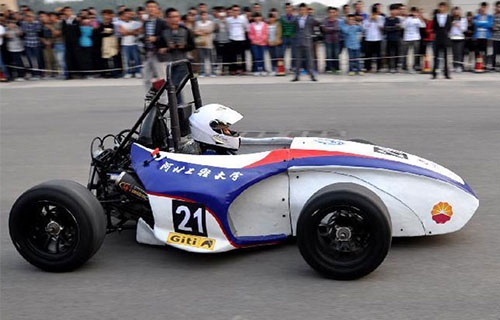

Fall from grace
Another factor believed to have worked in the interests of the overseas brands is the fall from grace of their Chinese counterparts, mainly because of the scandal surrounding the melamine-tainted formula produced by Sanlu Group, a state-owned Chinese diary products company.

The company, once a leading market player, was declared bankrupt and closed on the orders of a court, leaving foreign brands with almost 80 percent of the market for infant formula in major Chinese cities.
"Keeping that incident and its long-term repercussions for Chinese society in mind, it's little wonder that so few Chinese formula producers have tried to reach customers through the hospitals," said Wang Dingmian, deputy director of the Guangzhou Dairy Industry Management Office.
"Doctors would be reluctant to recommend brands that have earned the distrust of the public. Besides, even if they did, there's a high likelihood that the parents, who are now biased against all local brands, wouldn't follow their advice."
The huge demand in China has tipped the balance in favor of foreign brands, which are sold at a much higher price than homemade formulas, and has given these companies a big advantage when it comes to dealing with the hospitals, according to Wang.
"They can use a share of the enviable profits they have made in the Chinese market to reward their brand promoters among medical professionals, something that their more cost-conscious Chinese counterparts may not be able to do," he said.
But if all these elements can be counted as contributory factors, the roots of the collusion lie in a plethora of under-the-table deals at a much higher level, according to Chen, whose work involves refining and implementing her clients' marketing plans.
"Do you really think that the average doctor, not to mention nurse, would have the boldness or ability to arrange an in-hospital feeding lecture for parents to sell a certain brand of formula?" she asked.
"As far as I know, the decisions to hold these sessions are routinely made by hospital management, with doctors simply carrying out a directive knowing that they (the administrators) would not be doing it for nothing. And believe me, it doesn't stop at the hospital level."
"Foreign formula brands have been in China for more than two decades, and the depth to which they have ventured, or insinuated, themselves into various aspects of Chinese society is remarkable to say the least," she said. "To terminate their lengthy collaboration with the country's public hospitals would be to chop off the many tendrils of interest from both in and outside the country that have become intertwined and basically inseparable."
"I won't say we can't accomplish that, but it's certainly a daunting task."
Contact the writers at zhaoxu@chinadaily.com.cn and pengyining@chinadaily.com.cn
 Robots kick off football match in Hefei
Robots kick off football match in Hefei
 Aerobatic team prepare for Aviation Convention
Aerobatic team prepare for Aviation Convention
 China Suzhou Electronic Manufacturer Exposition kicks off
China Suzhou Electronic Manufacturer Exposition kicks off
 'Squid beauty' and her profitable BBQ store
'Squid beauty' and her profitable BBQ store
 A day in the life of a car model
A day in the life of a car model
 Vintage cars gather in downtown Beijing
Vintage cars gather in downtown Beijing
 Asia Bike Trade Show kicks off in Nanjing
Asia Bike Trade Show kicks off in Nanjing
 Student makes race car for 4th Formula SAE of China
Student makes race car for 4th Formula SAE of China